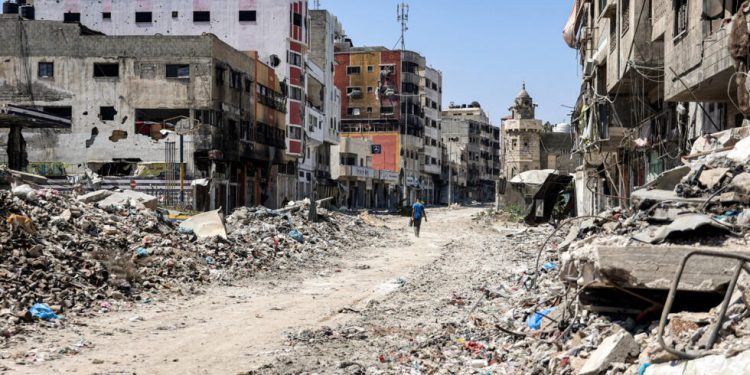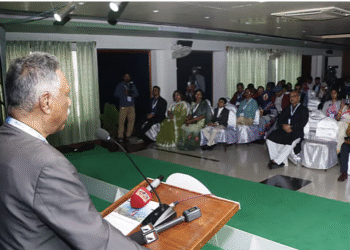Troops, tanks and aircraft were fighting in Gaza’s biggest urban area on the eve of new truce talks in Qatar that aim to free the hostages and halt the conflict raging into its 10th month.
A source with knowledge of the talks said CIA director William Burns and Israel’s Mossad chief David Barnea would travel to Doha on Wednesday and also meet the Qatari prime minister, a key mediator.
Hamas, whose October 7 attack started the war, has accused Israeli Prime Minister Benjamin Netanyahu of deliberately stepping up battles in Gaza City and in far-southern Rafah in order to thwart a ceasefire agreement.
The Islamist group’s Qatar-based political chief Ismail Haniyeh said he had made “urgent contact” with mediators, warning that the “catastrophic consequences” of the battles could “reset the negotiation process to square one”.
Hamas’s armed wing, the Ezzedine Al-Qassam Brigades, described the latest Gaza City fighting as “the most intense in months”, with militants using rockets, mortars and explosives.
Israeli forces — after almost two weeks of battles in Gaza City’s eastern Shujaiya district — on Monday intensified fighting and bombardment across the city’s east, west and south.
Residents reported overnight helicopter strikes, “explosions and numerous gun battles” in the city’s southwest.
Israel’s military said it was pursuing a “counterterrorism operation” against Hamas and Islamic Jihad in Gaza City, six months after it said it had dismantled Hamas’s “military framework” in northern Gaza.
“Over the last day, the troops eliminated dozens of terrorists in close-quarters combat and aerial strikes,” it said in a statement, adding that its forces had seized weapons and destroyed tunnels.
– Mass evacuations –
The United Nations said tens of thousands of civilians have been affected by the renewed fighting and three separate evacuation orders Israel has declared in Gaza City since June 27.
Thousands were again seen marching down dusty roads past bombed-out buildings, with mothers carrying babies and others packing their sparse belongings onto donkey carts.
The UN Human Rights Office said it was “appalled” at the new orders to civilians, “many of whom have been forcibly displaced multiple times, to evacuate to areas where IDF military operations are ongoing and where civilians continue to be killed and injured.”
The office said Gazans told to leave central Gaza City for the west on Monday were caught up in new fighting as the army “intensified its strikes in the south and west of Gaza City, targeting the very areas where they had instructed people to move to”.
Gaza City residents have now been told to move south to Deir al Balah, which the UN office said “is already seriously overcrowded with Palestinians displaced from other areas of the Gaza Strip”.
Fighting has also raged elsewhere in the territory, including in the Nuseirat, Khan Yunis and Rafah areas.
The military said Monday its air force had struck “several terrorists” who were using a Nuseirat school “as cover”.
A source at the local Al-Awda hospital said it had received several wounded after an attack on a school run by the UN agency UNRWA.
A strike on Saturday on another Nuseirat school had killed 16 people, according to the health ministry in Hamas-run Gaza which said the building was housing displaced people.
Israel’s army said Hamas and Islamic Jihad “systematically violate international law, exploiting civilian structures and population as human shields for terror attacks against the State of Israel”.
– ‘Points of divergence’ –
The war started with Hamas’s October 7 attack on southern Israel that resulted in the deaths of 1,195 people, mostly civilians, according to an AFP tally based on Israeli figures.
The militants seized 251 hostages, 116 of whom remain in Gaza, including 42 the military says are dead.
Israel responded with a military offensive that has killed at least 38,193 people in Gaza, also mostly civilians, according to figures from the territory’s health ministry.
Qatar has been engaged in months of behind-the-scenes negotiations, with support from Egypt and the United States, in efforts to reach a truce and and an exchange of hostages for Palestinian prisoners held in Israeli jails.
Hamas signalled last week that it would drop its insistence on a “complete” ceasefire, a demand Israel has repeatedly rejected.
Netanyahu’s office reiterated Sunday that “any deal will allow Israel to return and fight until all the goals of the war are achieved”, including the destruction of Hamas.
A Palestinian official with knowledge of the talks told AFP that while a Hamas delegation would take part in indirect talks with Israel, there were several “points of divergence”.
The official said these included Israel’s refusal to release some Palestinian prisoners serving long sentences, and questions on when Israel would withdraw from areas along Gaza’s southern border with Egypt.
AFP




















